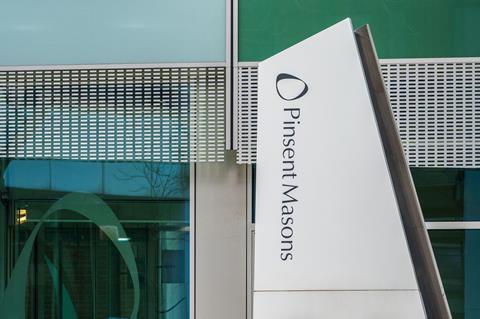A judge has said that the court may need to see privileged documents during any trial that goes ahead in a professional negligence claim against international firm Pinsent Masons.
The judgment in Fortimat Properties SA v Pinsent Masons LLP reveals that the firm faces a claim that it negligently advised in relation to a property development project.
The claimant, a company registered in Luxembourg, alleges that Pinsent Masons failed to identify that conditions required for the project had not been fulfilled and that it should not have been advancing money. The firm denies any allegations of negligence.
As part of its case against Pinsent Masons, the claimant argues that the solicitors did not properly staff the transaction and that it was, in practice, carried out by people who were too junior or too inexperienced to give proper advice. In related proceedings, the claimant alleges that money invested in the project was fraudulently misappropriated through a conspiracy involving other parties involved in the investment.

In his judgment, Mr Justice Jacobs stressed that his ruling on legal privilege was not related to the merits of either side’s case.
If the case proceeds to trial, the judge said, critical documents being relied upon by both parties will effectively come into the public domain. Any attempt by either side to argue that documents should stay privileged was ‘quite impossible to be sustained at the present stage’, he added.
A limited number of documents were produced for the court which the judge said were to be classed as privileged. He agreed with the claimant’s representative that it would be ‘very surprising indeed’ if, in the context of a professional negligence action, the case could be decided without looking at documents passing between the client and the solicitor.
‘The claimant which has brought these proceedings should recognise that the materials which are the basis of the professional negligence claim will, if the case fights, come into the public domain in any event, irrespective of the present position as to privilege,’ he stated.
On the issue of whether the court can see legal bills presented to the client, he added: ‘When one looks at the pleadings in this case, there is an issue which is pleaded and which is in play as to whether or not Pinsent Masons adequately staffed this particular work. That is likely to require consideration of the bills of Pinsent Masons, in conjunction with looking at their time records, to see who was doing what.’
A spokesperson at Pinsent Masons said: 'As the matter is subject to legal proceedings it would be inappropriate for us to comment further, save to say that the firm will be defending the proceedings robustly, and considers them to be misconceived.'
This article is now closed for comment.



























5 Readers' comments